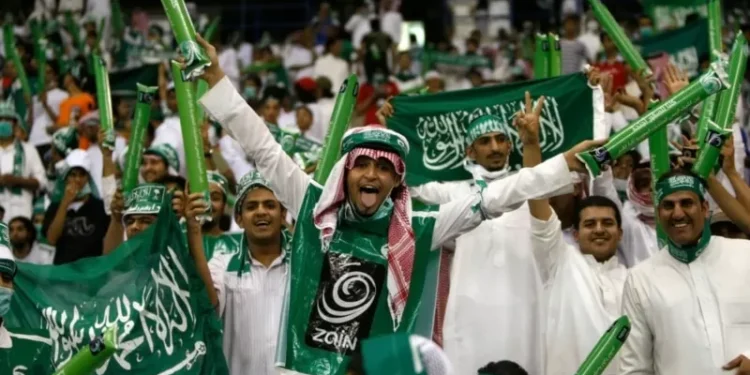ZURICH – Saudi Arabia has achieved a major victory in its efforts to attract major sports events to the kingdom. On Wednesday, it was officially announced that Saudi Arabia will be the host of the 2034 World Cup. This is a significant milestone for the country and a testament to its growing presence in the global sports arena.
However, as we look forward to this exciting event, there are still many questions that need to be answered in the next decade. Here are some of the key issues that will need to be addressed:
Where will the games be played?
Saudi Arabia has proposed 15 stadiums, with eight still in the planning stages, in five cities. These include eight in the capital city of Riyadh, four in the Red Sea port city of Jeddah, and one each in Abha, Al Khobar, and Neom – the futuristic mega-project. Each stadium will have a minimum capacity of 40,000 seats, making them suitable for hosting World Cup games.
The opening and final games will be held at a 92,000-seat stadium in Riyadh. Some of the proposed designs for these stadiums are truly impressive. For example, the Neom stadium is planned to be 350 meters above street level, while another stadium near Riyadh will be built on top of a 200-meter cliff with a retractable wall of LED screens. While Saudi Arabia aims to host all 104 games, there has been speculation that some games could be played in neighboring or nearby countries.
When will the World Cup be played?
One thing is for sure – the World Cup will not be held during the traditional period of June-July. This is because temperatures in Saudi Arabia routinely exceed 40 degrees Celsius during this time. The 2022 World Cup in Qatar was also moved to November-December due to the extreme heat, but this decision was not well-received by European clubs and leagues whose seasons were interrupted. Additionally, the holy month of Ramadan will fall in mid-December in 2034, and Riyadh will be hosting the multi-sport Asian Games. This leaves January 2034 as a possible option, although this would be just before the Winter Olympics in Salt Lake City. However, the International Olympic Committee has indicated that they would not be opposed to back-to-back major events. Ultimately, the decision on the dates of the tournament will be made by FIFA in consultation with the confederations.
Will stadiums be segregated for men and women?
One of the key aspects of Saudi Arabia’s modernization program, known as Vision 2030, is to give more rights and freedoms to women in a traditionally conservative society. In 2017, the kingdom made the decision to allow women to attend sports events, initially in major cities and in family zones separate from the men-only sections. By 2034, it is expected that female fans will not face any restrictions. In fact, Saudi Arabia has already launched a women’s professional football league in 2022, with players joining from clubs in Europe. These players face no restrictions in terms of playing in shorts and with their hair uncovered.
Will alcohol be allowed at the venues or hotels?
The prohibition of alcohol in Saudi Arabia is well-known and understood. Therefore, it is expected that FIFA will not sign any sponsor deals that involve alcohol for the 2034 World Cup. However, there is a possibility that there may be some exceptions. This was a contentious issue during the 2022 World Cup in Qatar, as there was an expectation that beer sales would be allowed at stadiums. However, this promise was later retracted, causing confusion and disappointment. In Qatar, alcohol was only served in luxury suites at the stadiums and in some hotel bars. It is likely that a similar approach will be taken in Saudi Arabia, as the country has even stricter rules on alcohol.
How will workers’ rights be protected?
Saudi Arabia has made promises to reform and enforce labor laws, and to fully respect migrant workers. These promises have been accepted by FIFA, but they face skepticism from rights groups and trade unions. In fact, a formal complaint is currently being investigated by the U.N.-backed International Labor Organization. Protecting the rights of migrant workers, who will be needed to build stadiums and other tournament projects, will be a major challenge for Saudi Arabia, especially after the issue of workers’ rights was a defining issue for the 2022 World Cup in Qatar.
Will Israel be allowed to play if they qualify for the 203







